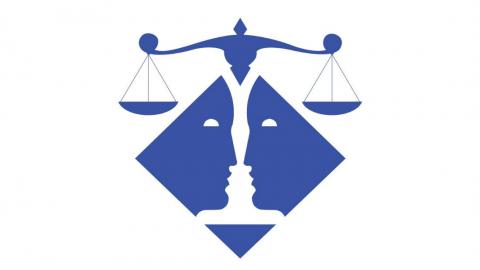Former Chief Justice Martin Proclaims October 15-21, 2017, as North Carolina Conflict Resolution Week
Article contents

Chief Justice Mark Martin has proclaimed the week of October 15-21 as Conflict Resolution Week in the state of North Carolina. In a ceremonial proclamation signed by Chief Justice Martin, Conflict Resolution Week is intended to recognize the importance of dispute resolution to the State, its courts and its citizens.
"On behalf of the Judicial Branch, we applaud the mediators, arbitrators, and other dispute resolution practitioners across North Carolina," said Chief Justice Martin. "Conflict Resolution Week celebrates their commitment to helping parties resolve their conflicts peacefully and successfully without prolonged litigation."
North Carolina has long had a strong commitment to programs that promote dispute resolution. The General Assembly created mediation and arbitration programs which have successfully operated in North Carolina's district and superior courts for more than 25 years. The N.C. Dispute Resolution Commission (DRC), established in October 1995, is charged with certifying and regulating private mediators who serve the courts, and also recommends policy, rules and rule revisions relating to dispute resolution in N.C. courts. The 17-member Commission is chaired by Judge William Webb and includes members appointed by all three branches of government.
Thousands of disputes between individuals, family members, corporations, small businesses, governmental agencies, and others are brought before N.C. civil and criminal courts each year. Mediation, arbitration and other conflict resolution processes, such as collaborative law, neutral evaluation and restorative justice, can help reduce the demands on the trial courts and improve efficiency. Many disputes are effectively addressed and resolved by the parties themselves with the help of a trained mediator or arbitrator, without the need to involve the police or the court system.
"Dispute resolution is not just a win-win for the parties, it is a win-win for the courts and the taxpayers as well," said Chief Justice Martin. "Conflict resolution processes empower litigants to devise mutually agreeable and durable solutions that save the time and stress of litigation, and efficiently resolve cases in our court system."
The Judicial Branch joins the American Bar Association, the Association for Conflict Resolution, and other organizations in celebrating the success of conflict resolution programs in North Carolina and across the country. Chief Justice Martin acknowledges court-based mediators, as well as the volunteer mediators and staff serving the more than 20 nonprofit community mediation centers operating across North Carolina. Mediators address a wide variety of disputes, including misdemeanor criminal matters, divorces, estates, guardianships, automobile accidents, business and contract matters, and many others.
"This week, North Carolina celebrates the successful institutionalization of dispute resolution programs in our courts, and we thank our mediators and arbitrators across the state," said Judge Webb. "It is abundantly clear that alternatives to litigation are an effective way in which to resolve disputes."
The Commission reports that of cases mediated in FY 2016-17, more than 58 percent of civil superior court cases and more than 73.5 percent of family financial cases were settled. With respect to arbitration, 75 percent of awards stood without appeal to become binding orders of the court. Additionally, the Child Custody and Visitation Mediation Program reports in 2016-17 that 5,455 parenting agreements were drafted, 11,310 mediation sessions were held, and more than 20,000 attended orientation sessions across the state.
MORE INFORMATION
The North Carolina Dispute Resolution Commission was established in October 1995, pursuant to N.C. Gen. Stat. § 7A-38.2. The Commission is charged primarily with certifying and regulating private mediators who serve the courts of this State. The Commission also recommends policy, rules and rule revisions relating to dispute resolution in North Carolina's courts; provides support to court-based mediation programs; certifies mediation training programs; serves as a clearinghouse for information about court-based mediation programs; and assists other state agencies interested in or providing dispute resolution services to their constituencies.